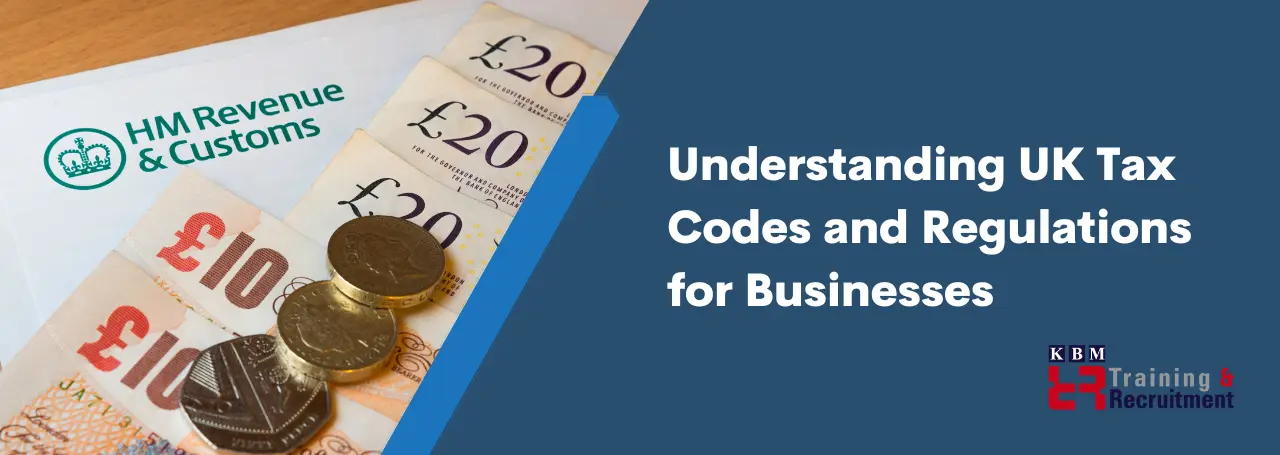Navigating the intricate landscape of UK tax codes and regulations is crucial to running a business. Whether you're a small startup or a well-established company, understanding the tax framework is essential for financial stability and compliance.
In this blog, we'll break down the complexities of UK tax codes and regulations in simple terms, helping businesses grasp the fundamentals and make informed decisions.
The Basics of UK Taxation
To comprehend tax codes and regulations, let's start with the basics. In the UK, businesses typically face different types of taxes, including:
- Corporate Tax: A tax on the profits of limited companies.
- VAT (Value Added Tax): A consumption tax added to the value of goods and services.
- Income Tax: Applicable to the income of self-employed individuals or partners in a business.
- National Insurance Contributions (NICs): Payments made by both employees and employers to fund state benefits.
Understanding the specific taxes relevant to your business is the first step in unravelling the complexities of the UK tax system.
Deciphering Your Tax Code
Every business is assigned a tax code that determines the amount of tax it needs to pay. These codes are issued by HM Revenue & Customs (HMRC) and are crucial for accurate tax calculation. Here's a breakdown of some standard tax codes:
- BR (Basic Rate): All income is taxed at the basic rate.
- D0 (Higher Rate): All income is taxed at the higher rate.
- D1 (Additional Rate): All income is taxed at the additional rate.
- L (Personal Allowance): You're entitled to the basic personal allowance.
Understanding your tax code ensures that you know the applicable rates and allowances, preventing overpayment or underpayment of taxes.
Record Keeping and Documentation
Efficient record-keeping is the cornerstone of navigating tax regulations. Keeping detailed and accurate records of your financial transactions, income, and expenses is a legal requirement and facilitates smooth tax filing.
Consider adopting accounting software to streamline the record-keeping process and ensure compliance with HMRC's standards.
Staying Compliant with VAT Regulations
VAT registration is mandatory for businesses with a turnover exceeding the VAT threshold (currently £85,000). Complying with VAT regulations involves:
- Charging VAT: If registered, your business must charge VAT on taxable goods and services.
- Submitting VAT Returns: Regularly submitting accurate VAT returns to HMRC.
- Record-Keeping: Maintaining detailed records of all VAT transactions.
Understanding the different VAT schemes, such as the Flat Rate or Cash Accounting Scheme, can help businesses choose the most suitable approach for their operations.
Employee Taxes and NICs
If your business employs staff, understanding employee taxes and NICs is vital. This includes:
- PAYE (Pay As You Earn): Deducting income tax and NICs from employees' salaries.
- Providing Benefits: Complying with tax regulations related to employee benefits.
- P11D Forms: Submitting P11D forms to report expenses and benefits provided to employees.
Seek Professional Advice
Given the intricacies of UK tax codes and regulations, seeking professional advice is highly recommended. Hiring an accountant or tax advisor can provide invaluable assistance in ensuring compliance, identifying tax-saving opportunities, and navigating complex tax scenarios.
Changes in Legislation and Updates
The world of tax is ever-evolving. Staying informed about changes in legislation updates from HMRC and new tax initiatives is essential. Regularly checking for updates on the official HMRC website or subscribing to relevant newsletters can keep your business ahead of regulatory changes.
Final Thoughts
Understanding UK tax codes and business regulations is fundamental to financial management. By grasping the basics of corporate tax, VAT, income tax, NICs, and other key components, businesses can ensure compliance, avoid penalties, and make informed financial decisions.
Adopting efficient record-keeping practices, staying abreast of updates, and seeking professional advice when needed are all part of a proactive approach to navigating the complexities of the UK tax system. Remember, knowledge is the key to financial stability and success in the ever-changing world of taxation.






















